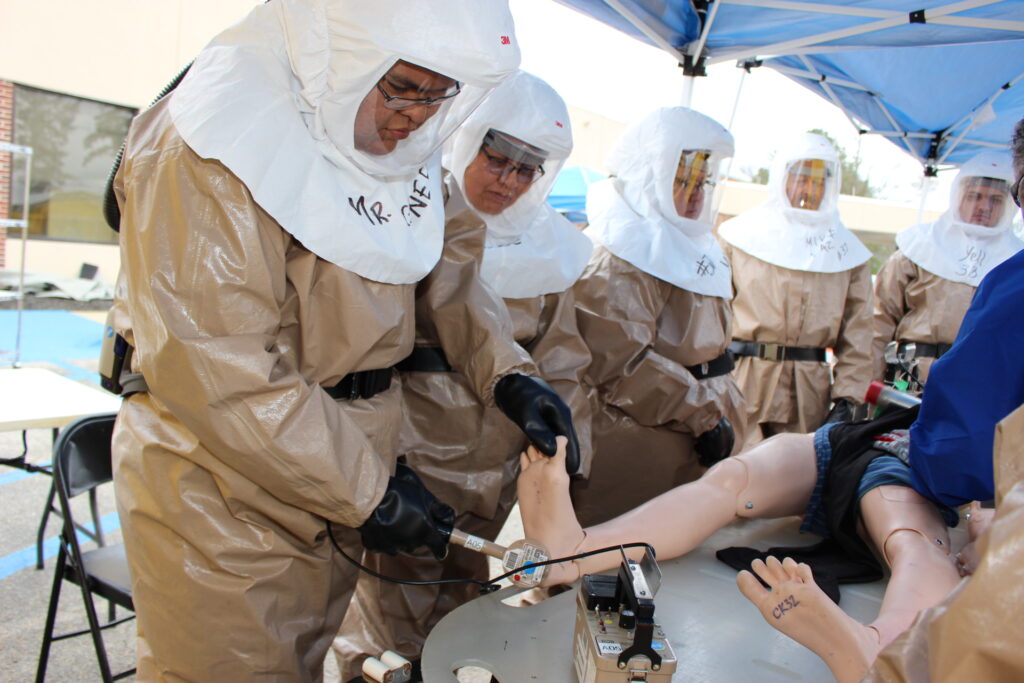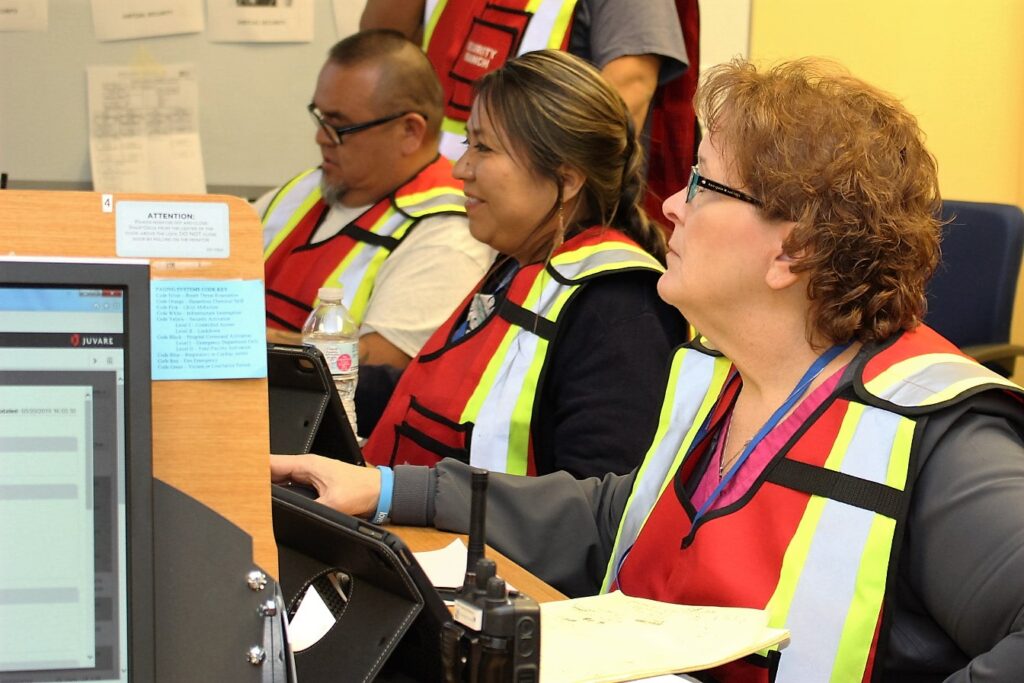TEEX Assists Center for Domestic Preparedness with Training Tribal Nations

In March of 2023, FEMA’s Center for Domestic Preparedness (CDP) will host its 8th Annual Tribal Nations Training Week. Responders from Tribal Nations all over the United States attend the training in Anniston, Alabama, coming from places as far as New York, Minnesota, and Alaska. In a typical year, participants represent more than 50 tribal nations spanning 21 US states.
During the week, CDP members provide emergency preparedness training at no cost to participants, including transportation, lodging, and dining. Courses cover everything from social media tools to risk assessment, from cybersecurity to active shooter, and they offer specific scenarios such as automobile crashes, HAZMAT spills, or epidemics. Some are short informational sessions, while others take place over several days.
The annual event is the largest tribal training event in the Department of Homeland Security. In 2021 the training shifted online due to COVID-19, and this year, they returned in person with a smaller on-campus event. Next year, Tribal Training Week will return to pre-COVID numbers of more than 300 attendees.
Tribal Training Week begins with a formal opening ceremony and a feast featuring traditional native dishes from across the country, including succotash and roasted pig or buffalo leg. The week ends with a closing ceremony and graduation.

David Hall, a Program Specialist with the CDP, was instrumental in bringing about this annual training week, which began as a series of special courses organized by the CDP. However, as the event grew, Hall and his team recognized that the training gaps required more than the CDP’s curriculum, so they reached out to partners in the National Domestic Preparedness Consortium (NDPC) and other organizations to offer courses.
As part of the NDPC, Texas A&M Engineering Extension Service’s National Emergency Response and Recovery Training Center (TEEX/NERRTC) offers yearly courses at Tribal Training Week. At the 2023 event, TEEX/NERRTC will provide four courses, including Incident Command System for Expanding Incidents, Understanding Targeted Cyber Attacks, Emergency Operations Center Management and Operations, and Threat and Hazard Identification and Risk Assessment and Stakeholder Preparedness.
After each training week, David’s team holds a focus group to assess and identify the top 20 training gaps and needs. Next year’s training will address 15 of these through 30 course offerings.
Hall describes the significance of this event, saying, “Training is what gives us the education and the muscle memory to be able to do the things we do when we respond. For the tribes, I think it’s extra important because a lot of them have never been able to have this type of training. If I’m able to teach one person one thing that saves their life or someone else’s, my career has been successful.”
Distributed by:
Texas A&M Engineering Extension Service
Vita Vaughn | Director of Marketing and Communications/CMO
[email protected]
